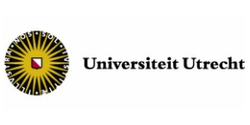PhD Position: Burden of Zoonoses in Europe
Updated: 15 Sep 2024
Zoonoses can cause a substantial burden not only on human health but also on animal health. A new methodology has been proposed – the zDALY – by Torgerson et al. (2018) to estimate the societal burden of zoonotic diseases. This method combines the DALY (Disease Adjusted Life Years) approach for human disease burden with the estimated monetary losses due to zoonotic diseases in animals. Does this sound like an interesting research subject to you? Join the international research project on “Burden of Zoonoses in EU and EEA/EFTA countries”.
Your job
Implementing a “One Health” approach will require the quantification of the dual burden (in humans and animals) of zoonotic diseases. Information on this dual burden of zoonotic diseases in Europe will help set priorities in European policy for zoonosis control. For this purpose, zDALYs need to be quantified and economic burdens not considered in zDALYs need to be added. Therefore, this project has the main aim to develop a framework for the estimation of the dual (human and animal) burden of zoonoses in the EU and EEA/EFTA. For this purpose, zDALYs will be estimated, as well as the economic costs that are not considered in zDALYs. The focus is on nine foodborne zoonoses: campylobacteriosis, salmonellosis, listeriosis, infection with Shiga toxin-producing Escherichia coli (STEC), zoonotic tuberculosis, brucellosis, trichinellosis, echinococcosis, and yersiniosis.
This PhD project will focus on the animal side of this dual burden. More specifically, the objectives of the project are:
- to estimate production losses of zoonotic diseases in animals;
- to estimate possible tangible (direct and indirect) and intangible costs of zoonotic diseases in animals.
Requirements:
We are looking for a colleague with a Master's degree and affinity for quantitative research, such as (animal) health economics, veterinary epidemiology, One Health, and computational biology. You have affinity with zoonoses and you are familiar with livestock production in the European context. Full proficiency in English, both written and oral, is a prerequisite. Good communication and collaboration skills are essential for this interdisciplinary and international project.
Salary Benefits:
We offer:
- a position for one year, which will be extended with three years upon satisfactory performance;
- a working week of 36 to 40 hours and a gross monthly salary between €2,872 and €3,670 in the case of full-time employment (salary scale P under the Collective Labour Agreement for Dutch Universities (CAO NU));
- 8% holiday pay and 8.3% year-end bonus;
- a pension scheme, partially paid parental leave and flexible terms of employment based on the CAO NU.
In addition to the terms of employment laid down in the CAO NU, Utrecht University has a number of schemes and facilities of its own for employees. This includes schemes facilitating professional development, leave schemes and schemes for sports and cultural activities, as well as discounts on software and other IT products. We also offer access to additional employee benefits through our Terms of Employment Options Model. In this way, we encourage our employees to continue to invest in their growth. For more information, please visit Working at Utrecht University.
36 - 40 hours per week
Yalelaan 7

